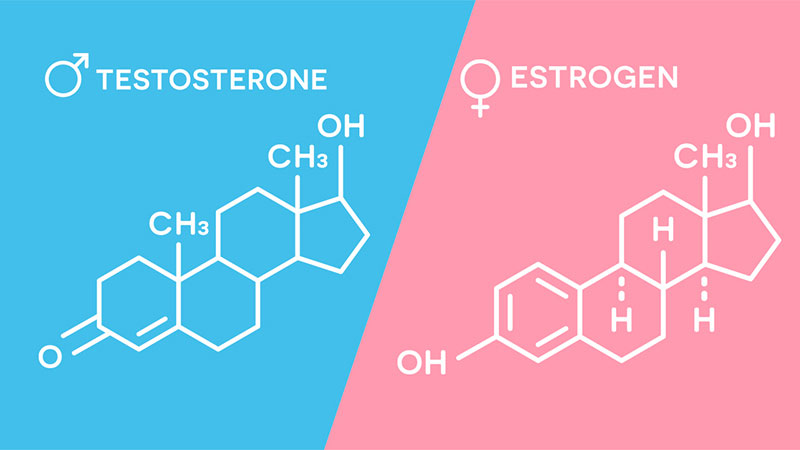Hormones are powerful chemical messengers that play a crucial role in regulating many of the body’s functions. From growth and development to mood and metabolism, hormones influence nearly every aspect of our lives. Understanding how hormones work and how they affect different stages of life can help us manage our health more effectively. This article delves into the significant impact of hormones on specific areas such as teenage acne, fertility, menopause, and men’s health, providing insights into how we can better navigate these phases with informed strategies.
1. Acne for Teens
For teenagers, the onset of puberty brings a surge of hormones, particularly androgens like testosterone, which can lead to increased oil production in the skin. This excess oil, combined with dead skin cells and bacteria, can clog pores and result in acne. Acne is not just a cosmetic issue; it can significantly impact a teenager’s self-esteem and social interactions. Understanding the hormonal underpinnings of acne can help in seeking appropriate treatments and managing this common condition.
Managing teenage acne often requires a multifaceted approach. Topical treatments such as benzoyl peroxide and salicylic acid can help reduce oil and clear clogged pores. In more severe cases, a dermatologist may prescribe hormonal treatments, such as oral contraceptives for girls or anti-androgen medications, to help balance hormone levels. Additionally, adopting a skincare routine that includes gentle cleansing and moisturizing, along with a healthy diet and stress management, can support clearer skin and overall well-being.
2. Increasing Your Fertility
Hormones play a pivotal role in fertility for both men and women. In women, hormones such as estrogen and progesterone regulate the menstrual cycle and prepare the body for pregnancy. Imbalances in these hormones can lead to issues like irregular periods and ovulation problems, which can affect fertility. Understanding one’s hormonal cycle and addressing any imbalances through medical intervention or lifestyle changes can enhance fertility prospects.
For men, testosterone is the primary hormone affecting fertility, influencing sperm production and quality. Low testosterone levels can lead to reduced sperm count and motility, impacting the ability to conceive. Lifestyle factors such as maintaining a healthy weight, managing stress, and avoiding smoking and excessive alcohol consumption can positively influence hormone levels and improve fertility. In some cases, medical treatments such as hormone therapy or assisted reproductive technologies may be necessary to support conception.

3. Menopause
Menopause marks a significant hormonal transition in a woman’s life, typically occurring in the late 40s to early 50s. This phase is characterized by a decline in estrogen and progesterone levels, leading to the cessation of menstruation. The hormonal changes associated with menopause can cause a range of symptoms, including hot flashes, night sweats, mood swings, and vaginal dryness. Understanding these changes can help women navigate this transition more comfortably.
Managing menopause often involves both lifestyle adjustments and medical interventions. Hormone replacement therapy (HRT) can help alleviate many of the symptoms by restoring hormonal balance. Additionally, adopting a healthy diet rich in calcium and vitamin D, engaging in regular physical activity, and practicing stress-reduction techniques such as yoga or meditation can support overall health and well-being during menopause. Open communication with healthcare providers can also ensure that any symptoms are effectively managed, and quality of life is maintained.
4. Men’s Health
Hormones play a crucial role in men’s health, particularly testosterone, which affects muscle mass, bone density, and sex drive. As men age, testosterone levels naturally decline, which can lead to symptoms such as decreased energy, reduced libido, and mood changes. Understanding these hormonal shifts is essential for maintaining health and vitality throughout a man’s life.
To manage the effects of hormonal changes, men can adopt several strategies. Regular exercise, especially resistance training, can help maintain muscle mass and boost testosterone levels. A balanced diet rich in nutrients such as zinc and vitamin D also supports hormonal health. In cases of significant hormonal imbalance, testosterone replacement therapy (TRT) may be considered under the guidance of a healthcare provider. Additionally, regular check-ups and open discussions about symptoms with healthcare professionals can ensure that men receive appropriate care and maintain optimal health as they age.
Hormones influence virtually every aspect of our lives, from our teenage years through adulthood and into old age. Understanding how hormones impact various stages and aspects of life can empower us to take proactive steps to manage our health effectively. Whether dealing with teenage acne, enhancing fertility, navigating menopause, or maintaining men’s health, recognizing the role of hormones and seeking appropriate treatments can lead to improved well-being and quality of life. By staying informed and working closely with healthcare providers, we can better navigate the hormonal changes that occur throughout life and maintain a healthier, more balanced existence.
CALL 631.360.8100
Begin Your Path To Wellness Today...
CALL 631.360.8100
Find Your Balance
Call To Book Your Appointment
CALL 631.360.8100



